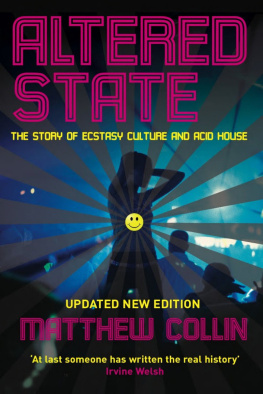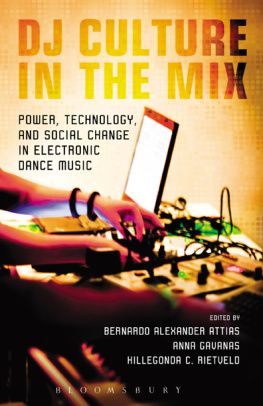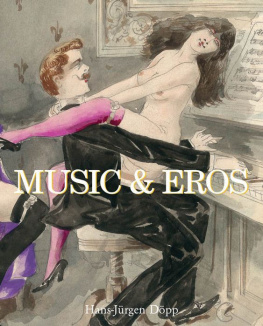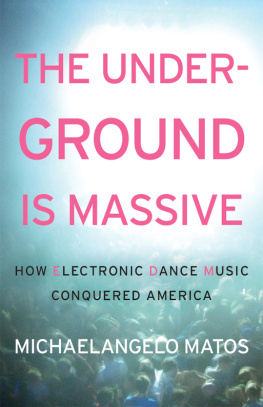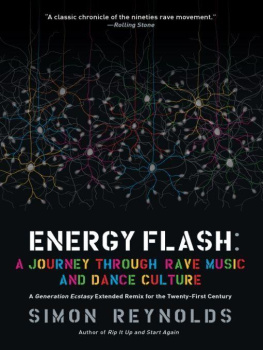
MATTHEW COLLIN is a British journalist and the author of Altered State, the story of the origins of acid house and rave culture in Britain. He has worked as a foreign correspondent for the BBC, Al Jazeera and Agence France-Presse, and as editor for i-D magazine, the Time Out website, the Big Issue and the Balkan Investigative Reporting Network. He has also written for many newspapers and magazines, including the Guardian, the Observer, Mixmag, the Wire and Mojo. His other books are This is Serbia Calling, The Time of the Rebels and Pop Grenade.
Also by Matthew Collin
Altered State
This is Serbia Calling
The Time of the Rebels
Pop Grenade

First published in Great Britain in 2018 by
Profile Books Ltd
3 Holford Yard
Bevin Way
London
WC1X 9HD
www.profilebooks.com
Copyright Matthew Collin, 2018
The moral right of the author has been asserted.
All rights reserved. Without limiting the rights under copyright reserved above, no part of this publication may be reproduced, stored or introduced into a retrieval system, or transmitted, in any form or by any means (electronic, mechanical, photocopying, recording or otherwise), without the prior written permission of both the copyright owner and the publisher of this book.
A CIP catalogue record for this book is available from the British Library.
eISBN 978 1 78283 145 7
Contents
For Audrey Collin
19352015
A lifetime inspiration
Introduction
Let the Music Use You

THEY CAME IN THEIR HUNDREDS that night to the Progressive Baptist Church on South Wentworth Avenue in Chicago. They drove there from all across the city and they flew in from as far away as New York and London not to sing or to celebrate, although they did that too, in the end, but because it was the right thing to do. They queued down the block, lining up to fill the pews and pay their last respects to a man whose music had helped to define a generation and, in its own way, made our world a more beautiful place.
There were speeches and there were tears as they remembered the life of Francis Nicholls Frankie Knuckles who had died after suffering complications from diabetes in March 2014, at the age of 59. Frankie Knuckles, the DJ whose sessions at Chicagos Warehouse club had
Others recalled how Frankie Knuckles had conjured a sense of unity and togetherness from nightlifes perennial darkness. From midnight to 6am, he was our therapist, one said. had turned into one of his most emotionally cathartic remixes, The Pressure, people started to rise to their feet, clapping, singing and weeping with joy and grief as they commemorated not only the man he was and the music he had given us but the freedom it had made us feel.
The memorial service that night in Chicago was held just a few minutes walk away from where dance music was once declared to be dead, more than three decades earlier. During a baseball game at Comiskey Park in 1979, a white radio DJ called Steve Dahl symbolically blew up a funeral pyre of disco records in what has since looked more and more like a homophobic, racist attempt to destroy the iconography of a culture of liberation an attempt that failed, of course, as history has since decided.
The church was also about 20 minutes drive from the old Power Plant club where Frankie Knuckles, who had already started to re-edit disco classics for a new generation at The Warehouse, began to run a Roland TR-909 drum machine under some of the records he was playing in the early eighties to give them more percussive power and electronic energy, pointing a way forward to what would become house music, the sound that he described as discos revenge.
I first heard him play several years after that, at the Delirium club in London in early 1988, when house was still little more than an obscure cult in Britain and the rave explosion was months away. He played one of his greatest productions that night, Let the Music Use You by The Nightwriters, a song that still encapsulates some of the fragile wonder of all that is best about house music, with its brightly optimistic chords that surge towards the heavens as the singer beseeches us to join hands with him and allow this sonic spirit to gather us up and take us higher, ever higher.
It would have been impossible to imagine, that night in London, that one day, reverential obituaries to Frankie Knuckles would be broadcast on the BBC and CNN, and that even the president of the United States would be offering up his respect to this wise and decent gentleman who brought such happiness. But so it was: Frankies work helped open minds and bring people together, blending genres to capture our attention and ignite our imaginations, wrote Barack and Michelle Obama in an unexpectedly heartfelt letter from the White House after Knuckles death. While he will be dearly missed, we trust Frankies spirit will remain a guiding force.
The passing of Frankie Knuckles caused an outpouring of collective anguish that, for the first time in years, brought dance musics disparate clans together in mourning and remembrance. It showed how much passion and belief had endured in a pop culture that was already more than three decades old, but also how far we had come since he had helped to transform disco into house in the black and gay clubs of the United States.
At the high end, the culture had turned into a feeding frenzy of gargantuan proportions, an orgy of capitalistic exploitation. By the end of 2015, a market analyst at research company Danceonomics estimated, electronic dance music was taking in revenues of $7.1 billion a year worldwide and as is customary in a global capitalist market, the biggest purses went to the few at the top. According to a report entitled Electronic Cash Kings that was published by business magazine Forbes, the highest-earning DJ that year, a man called Adam Richard Wiles from Dumfries in Scotland, made an estimated total of $63 million from live shows, recordings, merchandise sales, endorsements and other commercial activities conducted under his stage name, Calvin Harris.
Electronic cash kings back in the mid-nineties, there was a lot of talk about superstar DJs with their top-of-the-range sports cars and costly drug habits, but they were Lilliputian figures compared to the hulking leviathans who followed them. All the top showmen these cash kings were almost always men, of course had become perennial globetrotters, jetting from gig to gig and cutting new tracks on their laptops in VIP departure lounges and five-star hotel rooms as they sipped the complimentary champagne and racked up the air miles.
Even those who specialised in less populist forms of electronic music were constantly on the road or in the air, shuttling back and forth between the disparate nodes of their international cult followings. Just to take one example, during the course of a single month May 2016 Berlin techno DJ Ellen Allien was billed to play at parties in 11 different countries: Germany, France, Italy, Spain, Austria, Turkey, Israel, India, Colombia, Ecuador and the US. These were punishing schedules that showed little forgiveness to the weak-hearted or mentally unfit. The same year, Swedish trance DJ Avicii announced that he was retiring from touring at the age of just 26 after reportedly suffering from alcoholism and exhaustion exacerbated by the pressures of his itinerant lifestyle. For the winners, the spoils were lavish indeed, but there were toxic perils along the wayside too.
Next page

